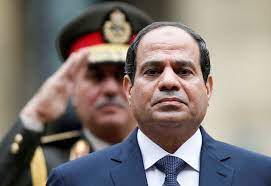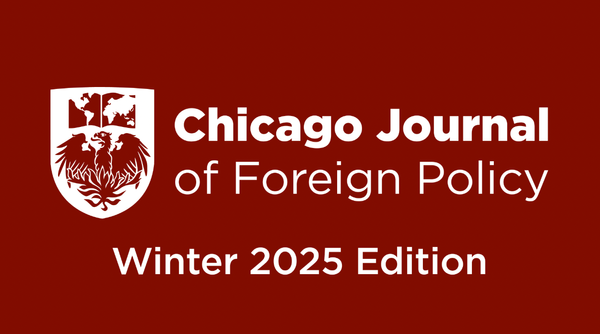Egypt: Dictatorship or Democracy?

By Sophie Polgar, UNC 2022
Since rising to power, Egypt’s President Abdel Fattah al-Sisi has secured his position as an authoritarian dictator. He has expanded the institutions under his control, allowing them to exercise sweeping powers over the population without checks or balances. These state institutions act legally but without accountability, a phenomenon called “resurgent authoritarianism.” In elections, voters are faced with carefully selected choices that channel pro-regime voices and dilute opposing ones. Though views critical of the regime are certainly present, the opposition – including business interests, NGOs, labor unions, and other groups – has failed to organize into a meaningful movement. Meanwhile, Sisi has created divisions among elites in order to prevent any threats to his power. While Sisi allows some pseudo-democratic institutions to function within strict limits, Egypt does not approach the standards for a democracy.
Egypt’s current government is a party-based authoritarian regime featuring a cult of personality with Sisi, the president, at its center. Rather than consolidating power only within the presidency, Sisi has created a reconfigured authoritarianism. Since assuming office in 2014, he has strengthened the authority of certain institutions in the absence of a parliament, taking advantage of the power vacuum to lay the groundwork for his own power structure. His policies grant the courts, security services, and chief prosecutor a high level of discretion in interpreting the written law. In order to stretch the law in the regime’s favor, these actors need not declare a state of emergency. They simply act within the bounds of the laws they have created with wide discretion and little public oversight.
Non-Governmental Actors in Egypt
The non-regime actors in Egypt include political parties, business elites, trade unions, non-governmental organizations, and the masses. Despite their optimism following the 2011 revolution, these parties are currently poorly positioned to counter Sisi’s reforms.
Most political parties objected to the reforms Sisi made to consolidate his power. Specifically, they questioned election regulations designed to enable wealthy or well-connected individuals to dominate the new parliamentary system. While political parties do still have some presence, the new law is likely to further diminish their position within Egyptian politics as it denies credible opposition groups “the space to function effectively.”
Another group with the potential to be powerful players are economic actors, including businesses and labor unions. While many businesses and economic elites oppose Sisi’s repression, their complaints are quiet; the private sector is afraid of being excluded from Sisi’s plans for economic and political revitalization. Labor unions also have a stake in the new wave of legislation. Trade unions were in a state of turmoil even prior to the regime and now desire favor with the Sisi administration. Though state-sanctioned organizations and “independent” unions both exist, the state has the final say in creating a legal framework in which unions may yield any power over the public or private sector. The attempts to silence unions could trigger protest; they want their voices heard, and with new laws, they may become more actively vigilant.
Other nongovernmental organizations are similarly disorganized. They are internally divided on which laws to address and how they want to work with the administration. They also are focused on combatting protest regulations rather than more systemic issues. The masses also have some power in Egypt, including the ability to take part in collective action, but their protests are often matched with repression. For example, following the passage of the Protest Law in 2013, Islamists, human rights groups, and liberals alike erupted in demonstrations. The government swiftly responded with violence in order to disperse the crowds.
Sisi’s regime is also supported by the military establishment, with many officers viewing him as a savior in uniform. The military has committed to improving the living conditions of the majority; in the aftermath of the revolution, this gained vast public support. Many individuals, especially those who feared a democratic opening, supported Sisi’s coup. This base of support saw him as a savior in uniform, tying into his cult of personality.
Repression of the Masses
Organized political opposition outside of parliament is restricted as well. Freedom House reports that Egyptian political parties are only legally permitted if they meet membership thresholds and comply with fees. Key opposition groups such as the Muslim Brotherhood, a small number of political parties, human rights defenders, and other activists struggle under the new law.
Sisi’s quick coup after the Arab Spring ensured that activists achieved little. Some actors continue to pursue change under Sisi’s complex legal framework, but they are fighting an uphill battle. The sheer quantity of new laws and makes it more difficult for outside actors to be effective.”
One law that protects Sisi’s power is Egypt’s Protests Law, which was passed in 2013. It restricts freedom of assembly and prohibits protest with broad definitions of terrorism, sabotage, or inciting violence. Other policies, including the University Regulations Law, target political expression on university campuses. By invoking concepts such as public order or “the greater good” of society, the Sisi regime can prosecute these unruly citizens with immense discretion. The vague language enables more action: on top of state institutions themselves, local security offices, universities, and various ministries work as cronies of the regime to regulate all manners of action, public gathering, and protest. According to testimony provided to the House Foreign Affairs Committee, Sisi is focused on fighting his “perceived adversaries…most of all, anyone inside Egypt who dares to dissent from [his] views.”
Moreover, Egypt’s president engages in “unprecedented domestic repression;” Egypt is currently the third world jailer in the world according to some estimates. The public space is closely monitored, and those who violate laws are severely punished. This layered system obstructs the ability of the masses to organize and thereby engage in collective action to overthrow the regime. This wide-scale repression, in combination with an asphyxiated political opposition, ties in to the problem of authoritarian control. Since his rise to power in 2014, Sisi has strongly and quickly handled this problem and “is adapting lawmaking for its own purposes.” These scare tactics drive the average Egyptian citizen away from involvement in public affairs, insulating the regime from the will of the masses. Finally, the regime utilizes propaganda to further its agenda. It asserts power over the masses by “propagating conspiracy theories and populist narratives as a prime strategy for maintaining its control of society.”
Challenges from the Elites
Sisi manages the problem of authoritarian control through his legislative reforms and consolidation of power over a multitude of actors. However, the resulting system “is likely to be challenged from below and perhaps even from inside.” As all rulers do, Sisi faces challenges from the other powerful elites in Egyptian society that desire influence over the political sphere. As discussed by researcher Milan Svolik, authoritarians maintain power through a few key strategies: they operate with a degree of secrecy even among their allies, use a cult of personality to signal their independence from any administrators, and ensure that no individual administrator is indispensable to him or her. Sisi does exactly this: by placing himself firmly in the center of the political system, he signals his independence from his ruling coalition. His quick and drastic legislative reforms keep his allies on their toes. They are forced to follow his lead, instead of trying to consolidate their own power.
Sisi has eroded the power of political elites as well. After inauguration, he utilized article 156 of the constitution to give himself control over certain legislative matters without the input of a parliament. Article 156 gives the president “the right to issue laws by decree provided that they concern emergency matters that do not permit delay and are submitted to the parliament for approval once that body has been elected and can meet.” However, the state of emergency that followed the 2011 Revolution lasted long enough for Sisi to enact several reforms. In fact, the upper house of the legislature (Shura Council) was abolished in 2014 but later restored as a 180-member Senate in 2019. Currently, only two-thirds are elected, and the president appoints one-third of its members. In essence, the emergence of any elite legislative coalition would require the president’s approval. Therefore, Sisi maintains a strong handle on political power.
Government Actors
Within the government, the judicial branch poses the greatest threat to Sisi’s power. Many of Sisi’s legislative reforms eroded some the power and independent authority of the judicial branch. If the judiciary feels threatened by Sisi, they may attempt to push back to retain their status. For example, Sisi’s recent decision to disregard recommendations made by the State Council, a judicial body that gives legal advice to the government, “raised eyebrows and may have undermined the effect of his gestures to respect judicial independence.”
Over the long term, the judiciary may assert and compete for more power with other state bodies. Notably, this conflict between branches of the state could open up space for other political challengers. Today, Sisi may feel secure in his power, but during a domestic or foreign crisis, he will want all the support that he can receive from state institutions. Given the pro-regime tone of the most recent court rulings, the courts seem to shy away from challenging Sisi’s lock on the government; this challenge from the courts seems only possible over the long term.
Government ministries have more independent authority than the courts. As Sisi continues his everlasting term as president, he relies on existing state institutions. He also utilizes a legislative reform committee that was established “to draft laws and work with those already under development by ministries.” This set-up appears to channel state voices but few societal ones. The committee, for example, empowers state institutions with authority and direction without many restrictions on their activities. This freedom leads into the most crucial source of weakness for the current regime. If these chances for the seizure of power allow a state ministry to grow in popularity and influence, Sisi may be threatened. If these ministries ally with the judicial branch for example, they could coalesce a substantial amount of power. Still, as long as Sisi retains control over the military, he can repress most opposition.
Conclusion
Ultimately, the fall of Sisi’s regime does not appear imminent. Sisi is working to enshrine his own regime by sidelining or eliminating the presence of a viable opposition and empowering state institutions to act in his favor. Through laws that repress political action and chaos that causes internal actors to compete for his favor, Sisi dispels other elites from gaining power. Overall, the elements of the Sisi regime create strong protection against any threats to his power.
Bibliography
Brown, Nathan J., and Katie Bentivoglio. “Egypt’s Resurgent Authoritarianism: It’s a Way of Life.” Carnegieendowment.org. Last modified October 9, 2014. Accessed April 26, 2021. https://carnegieendowment.org/2014/10/09/egypt-s-resurgent-authoritarianism-it-s-way-of-life-pub-56877.
Freedom House. “Freedom in the World 2020: Egypt.” Freedom House. Last modified 2020. Accessed February 21, 2021. https://freedomhouse.org/country/egypt/freedom-world/2020.
Hamzawy, Amr. “Legislating Authoritarianism: Egypt’s New Era of Repression.” Carnegieendowment.org. Last modified March 16, 2017. Accessed April 26, 2021. https://carnegieendowment.org/2017/03/16/legislating-authoritarianism-egypt-s-new-era-of-repression-pub-68285.
Svolik, Milan W. “3.” In The Politics of Authoritarian Rule. Cambridge: Cambridge University Press, 2012.
Wittes, Tamara Cofman. “Egypt: Trends, politics, and human rights.” Testimony to House Foreign Affairs Committee, Subcommittee on the Middle East, North Africa, and International Terrorism, September 9, 2020. Accessed April 26, 2021. https://www.brookings.edu/testimonies/egypt-trends-politics-and-human-rights/.





